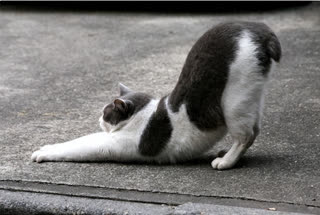The Devon Rex, with its elf-like ears and wavy coat, is a playful and affectionate breed. However, their unique genetics can make them prone to food sensitivities. If your Devon Rex cat is scratching excessively, vomiting, or showing skin irritation, they might be suffering from Devon Rex cat food allergies symptoms and solutions. This guide breaks down the signs of food allergies, actionable steps to manage them, and how to prevent flare-ups—ensuring your curly-coated companion stays healthy and happy.
1. Understanding Devon Rex Food Allergies
Food allergies in Devon Rex cats occur when their immune system mistakenly identifies a protein (e.g., chicken, fish, or dairy) as harmful. Unlike seasonal allergies, food-related reactions persist year-round. Common triggers include:
Animal proteins: Beef, chicken, fish
Grains: Wheat, corn, soy
Additives: Artificial colors, preservatives
Recognizing Devon Rex cat food allergies symptoms and solutions early is critical to avoiding complications like chronic inflammation or malnutrition.
2. Key Symptoms of Food Allergies in Devon Rex Cats
Food allergies often manifest in three ways:
A. Skin & Coat Issues
Itching: Obsessive scratching, especially around the face, ears, or base of the tail.
Rash or sores: Red, inflamed skin or scabs from over-grooming.
Dull coat: Loss of the Devon Rex’s signature soft, wavy fur.
B. Digestive Problems
Vomiting: Frequent regurgitation of undigested food.
Diarrhea: Loose stools, sometimes with mucus or blood.
Weight loss: Reduced appetite or nutrient malabsorption.
C. Behavioral Changes
Lethargy: Unusual lack of energy during playtime.
Irritability: Hissing or avoiding touch due to discomfort.
3. Diagnosing Food Allergies: Steps for Pet Owners
Step 1: Elimination Diet Trial
Work with your vet to remove potential allergens for 8–12 weeks. Hydrolyzed protein or novel protein (e.g., venison, duck) diets are often recommended.
Step 2: Allergy Testing
Blood tests or intradermal skin tests can identify specific triggers, though they’re less reliable for food vs. environmental allergies.
Step 3: Monitor Progress
Track symptoms in a journal. If itching or vomiting subsides during the trial, reintroduce old foods one by one to pinpoint the culprit.
4. Effective Solutions for Managing Allergies
Addressing Devon Rex cat food allergies symptoms and solutions requires a multi-pronged approach:
A. Hypoallergenic Diets
Prescription foods: Brands like Royal Canin Hypoallergenic or Hill’s z/d break down proteins to avoid immune reactions.
Limited-ingredient diets: Single-protein formulas (e.g., rabbit, kangaroo) reduce exposure to allergens.
B. Supplements & Medications
Omega-3 fatty acids: Reduce skin inflammation (e.g., fish oil added to food).
Antihistamines: Vet-prescribed pills like chlorpheniramine for itch relief.
Steroids: Used short-term for severe flare-ups.
C. Environmental Adjustments
Hypoallergenic grooming: Fragrance-free shampoos to soothe sensitive skin.
Clean feeding bowls: Use stainless steel or ceramic to prevent bacterial buildup.
5. Preventing Food Allergy Flare-Ups
Avoid table scraps: Human food often contains hidden allergens like garlic or dairy.
Read labels carefully: Ensure treats and kibble are free from your cat’s trigger ingredients.
Rotate proteins: Introduce new proteins gradually to prevent developing new allergies.
6. When to See a Veterinarian
Seek immediate care if your Devon Rex shows:
Swollen face or difficulty breathing (signs of anaphylaxis).
Blood in stool or vomit.
Open wounds from excessive scratching.
Managing Devon Rex cat food allergies symptoms and solutions can be challenging, but with patience and the right diet, most cats live symptom-free. Always consult your vet before making dietary changes, and prioritize high-quality, hypoallergenic nutrition to support your Devon Rex’s unique needs.










